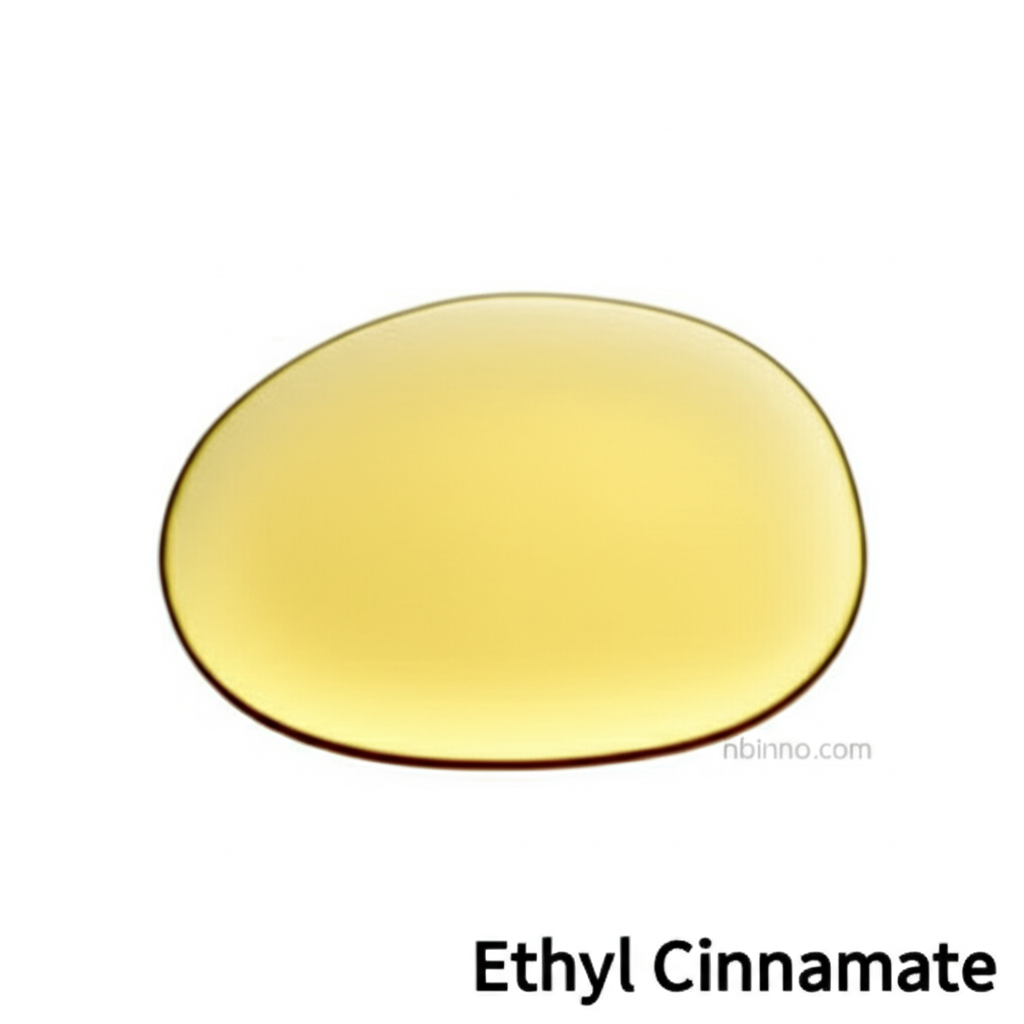Ethyl Cinnamate: Your Guide to Fruity, Balsamic Aromas in Fragrance, Flavor, and Beyond
Discover the versatile applications of this sweet, fruity, and balsamic ester in a world of scents and tastes.
Get a Quote & SampleProduct Core Value

Ethyl Cinnamate
Ethyl cinnamate is a highly sought-after ester celebrated for its distinctive aroma profile, blending sweet, fruity notes with warm, balsamic undertones reminiscent of cinnamon and honey. This versatility makes it an indispensable ingredient across numerous industries.
- A Cornerstone in Fragrance Formulation: Experience the warm, balsamic character that ethyl cinnamate brings to oriental and fruity fragrance accords, enhancing scent longevity and complexity.
- Enhancing Food and Beverage Flavors: As a widely approved flavoring agent, its sweet, fruity notes can mimic strawberry, cherry, and grape profiles, enriching confectionery, baked goods, and beverages.
- Pharmaceutical Intermediate: Utilize ethyl cinnamate's chemical structure as a building block in synthesizing antimicrobial and anti-inflammatory agents, showcasing its role in drug development.
- Industrial Applications and Safety: Beyond flavors and fragrances, ethyl cinnamate serves as a plasticizer and flavor enhancer in tobacco, boasting low acute toxicity and compliance with global regulatory standards, making it safe and effective.
Key Advantages
Exceptional Aroma Profile
The sweet, fruity, and balsamic notes of ethyl cinnamate are crucial for creating compelling fruity balsamic accords in perfumes and enhancing natural fruit flavors in foods.
Versatile Application Range
From fine perfumery to confectionery and pharmaceutical intermediates, ethyl cinnamate offers broad utility, proving its value as a flavoring agent in many consumer products.
Natural Occurrence and Synthesis
Naturally found in sources like cinnamon leaves, its synthesis from cinnamic acid and ethanol ensures a reliable supply, making it a preferred choice for brands seeking quality aroma chemical ingredients.
Key Applications
Fragrance Industry
Imparts warm, balsamic, and sweet notes to perfumes, colognes, and air fresheners, contributing to oriental and fruity scent profiles.
Food & Beverage
Used as a synthetic flavoring agent, it enhances fruit flavors like strawberry, cherry, and grape in confectionery, baked goods, and beverages.
Cosmetics
Incorporated into skincare and personal care products for its fragrance contribution and potential as a UV absorber and stabilizer.
Pharmaceuticals
Serves as a chemical intermediate in the synthesis of antimicrobial and anti-inflammatory agents, and as a masking agent for palatability.
